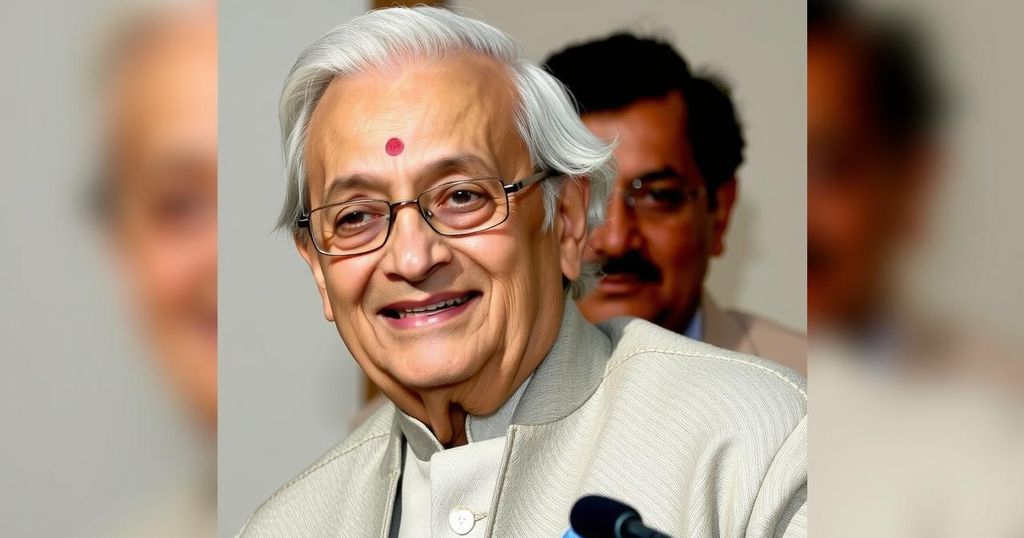Former Indian Prime Minister Manmohan Singh Passes Away at 92

Manmohan Singh, former Prime Minister of India, died at age 92. He was celebrated for his free-market reforms that transformed India into an economic powerhouse and was the country’s first Sikh prime minister. His career was marked by both significant economic growth and political challenges, including allegations of corruption. Singh’s contributions to India’s economy remain influential, shaping the country’s trajectory toward modernization.
Manmohan Singh, the esteemed former Prime Minister of India, passed away on Thursday in New Delhi at the age of 92. Renowned for his significant contributions to India’s economic reforms, Mr. Singh played a pivotal role in transforming the country into an economic powerhouse. As the first Sikh to hold the office, he introduced free-market policies that helped to modernize the Indian economy while promoting diplomatic relations with neighboring Pakistan. His legacy is characterized by both remarkable economic growth and the complexities of serving in a political landscape often marred by controversy.
Born in present-day Pakistan, Singh’s early life was shaped by the aftermath of India’s partition in 1947. His tenure as Prime Minister was marked by a series of ambitious reforms initiated in 1991 during his time as finance minister. Under his guidance, India experienced a surge in white-collar jobs, contributing to the emergence of a burgeoning middle class despite the country’s persistent struggle with poverty.
Manmohan Singh’s career began in academia and finance before he entered public service. He served as the Governor of the Reserve Bank of India and held various positions in economic policy-making. His skills were eventually called upon by then Prime Minister P.V. Narasimha Rao in 1991, during a time of economic crisis. Singh’s implementation of liberalizing reforms not only stabilized the economy but also paved the way for India to emerge as a competitor on the global stage, particularly with respect to China. Despite his successes, Singh’s leadership has been shadowed by political challenges and allegations of corruption, particularly involving the telecommunications and coal sectors. His reserved demeanor and infrequent press engagements further fueled public scrutiny. Nevertheless, his vision for India’s economic trajectory remains influential, and he is often regarded as one of the architects of modern India’s economic landscape.
In conclusion, Manmohan Singh’s passing marks the end of an era for India, reflecting on a leader whose economic policies were instrumental in shaping the nation’s modern landscape. His pioneering vision for a liberalized economy has left an indelible mark on India’s path toward economic progress. Singh’s legacy is one that entwines significant achievements with the challenges of leadership in a complex socio-political environment. His contributions to the nation will be remembered as pivotal in advancing India’s global economic standing.
Original Source: www.nytimes.com







